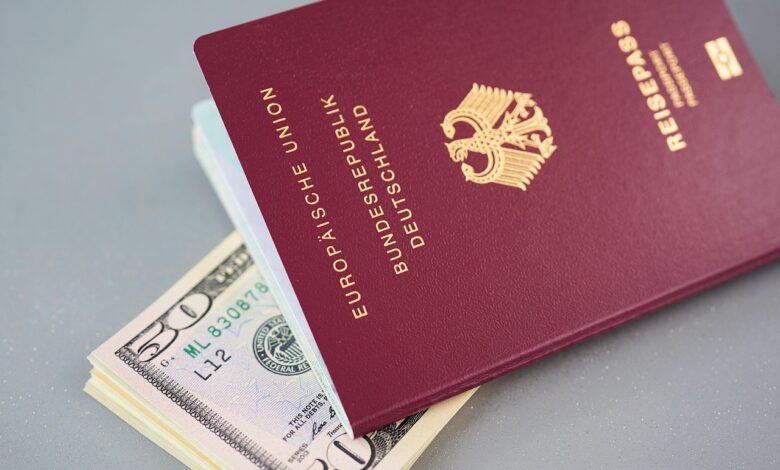Pension and Retirement Costs in Greece

Greece, like many countries, has a complex pension system that plays a crucial role in the lives of retirees. Understanding how pensions work, the associated costs, and planning for retirement is essential for both Greek citizens and expatriates considering retiring in Greece. In this article, we’ll explore the key aspects of pensions and retirement costs in Greece, including the public pension system, private savings options, healthcare expenses, and lifestyle considerations.
1. The Greek Pension System
Greece’s pension system is primarily based on a pay-as-you-go model , where current workers contribute to fund the pensions of existing retirees. However, the system has faced significant challenges over the years due to economic crises, an aging population, and reforms mandated by international creditors.
Types of Pensions in Greece
There are two main types of pensions in Greece:
- Primary State Pension: This is funded through social security contributions made by employees and employers during a person’s working life. Contributions are typically around 13.31% of gross salary for employees (with additional employer contributions).
- Supplementary Pensions: These are optional and provided by private or occupational funds. They supplement the primary state pension to ensure a more comfortable retirement.
Eligibility for a Pension
To qualify for a full pension in Greece, individuals must meet specific criteria:
- Minimum Contribution Period: You generally need at least 40 years of contributions to receive a full pension.
- Retirement Age: As of recent reforms, the standard retirement age is 67 years old for most workers. Early retirement may be possible under certain conditions but often results in reduced benefits.
2. Recent Pension Reforms
In response to Greece’s financial crisis, the government implemented several reforms aimed at stabilizing the pension system. Key changes include:
- Increased Retirement Age: Previously, the retirement age was lower, but it has been gradually raised to 67.
- Reduced Benefits: Payouts have been scaled back, particularly for early retirees.
- Unified Pension System: Multiple pension funds were merged into a single framework to simplify administration and reduce inefficiencies.
These reforms have made it more challenging for retirees to rely solely on state pensions, emphasizing the importance of supplementary savings.
3. Average Pension Amounts
The average monthly pension in Greece varies significantly depending on factors such as contribution history, job type, and whether supplementary pensions are included.
- State Pension: The basic state pension ranges from approximately €350 to €900 per month , depending on contributions and career length.
- Total Pension Income: Including supplementary pensions, retirees might earn between €800 and €1,500 per month , though higher earners can receive more.
For many retirees, especially those relying solely on the state pension, this amount is modest and requires careful budgeting.
4. Healthcare Costs in Retirement
Healthcare is a critical consideration for retirees, as medical expenses tend to increase with age. Greece offers universal healthcare coverage, but there are still costs to consider.
Public Healthcare (ESY)
- Retirees who have contributed to the social security system are entitled to free or subsidized healthcare through ESY (National Health System) .
- Prescription medications, specialist visits, and hospital stays are often covered, though some services require co-payments.
Private Health Insurance
- Many retirees opt for private health insurance to access faster and higher-quality care.
- Monthly premiums for private plans range from €50 to €200 , depending on coverage levels and age.
5. Cost of Living for Retirees
Greece is known for its relatively affordable cost of living compared to other European countries, making it an attractive destination for retirees. However, expenses vary depending on location and lifestyle choices.
Housing
- Renting an apartment in smaller towns or rural areas can cost as little as €300–€500 per month , while larger cities like Athens or Thessaloniki may require €600–€1,000+ .
- Buying property is also affordable, with prices starting at €1,000–€2,000 per square meter outside major urban centers.
Utilities
- Monthly utility bills (electricity, water, heating, internet) typically range from €100 to €200 .
Food and Groceries
- Eating out is inexpensive, with meals at local tavernas costing €8–€15 .
- Grocery shopping for a couple averages around €300–€400 per month .
Transportation
- Public transportation is affordable, with monthly passes costing about €30–€50 in cities.
- Fuel and car maintenance costs are comparable to other EU countries.
6. Tax Implications for Retirees
Understanding tax obligations is vital for retirees in Greece.
Income Tax on Pensions
- Greek residents pay income tax on their worldwide pension income. Non-residents are taxed only on income sourced within Greece.
- Tax rates range from 9% to 44% , depending on total income. A special flat rate of 7% applies to foreign pensions if certain conditions are met.
Property Taxes
- Property ownership incurs annual taxes called ENFIA , which depend on the size, location, and value of the property. These taxes can range from €100 to €1,000+ annually .
7. Supplementary Savings and Investments
Given the modest state pension payouts, retirees should consider building supplementary savings to maintain a comfortable lifestyle.
Private Pension Plans
- Contributions to private pension funds offer tax advantages and provide additional income during retirement.
- Some banks and insurance companies offer tailored retirement savings products.
Real Estate Investment
- Purchasing rental properties can generate passive income, helping offset living expenses.
Stock Market and Bonds
- Low-risk investments such as bonds or dividend-paying stocks can provide steady returns.
8. Special Programs for Foreign Retirees
Greece has introduced incentives to attract foreign retirees, particularly from non-EU countries.
Golden Visa Program
- Non-EU nationals investing at least €250,000 in real estate can obtain residency permits, granting access to Greece’s healthcare and education systems.
- This program is popular among retirees seeking a Mediterranean lifestyle.
Tax Benefits for Expats
- Certain categories of foreign retirees may qualify for favorable tax treatment, such as reduced rates on foreign-sourced income.
9. Challenges Facing Retirees in Greece
While Greece offers many advantages for retirees, there are challenges to consider:
- Economic Uncertainty: Frequent policy changes and economic instability can impact pensions and living costs.
- Bureaucracy: Navigating the pension system and healthcare services can be cumbersome without knowledge of Greek or assistance from locals.
- Limited English Support: Outside tourist areas, English proficiency is limited, which can pose difficulties for expatriate retirees.
10. Tips for Planning Your Retirement in Greece
To ensure a smooth transition into retirement in Greece, follow these tips:
- Start Saving Early: Build a robust nest egg to supplement your state pension.
- Consult Professionals: Work with financial advisors familiar with Greek regulations to optimize your retirement strategy.
- Learn the Language: Basic Greek skills will enhance your daily life and interactions with authorities.
- Explore Regional Options: Consider retiring to less expensive regions like Crete, Peloponnese, or Epirus for a lower cost of living and quieter lifestyle.



